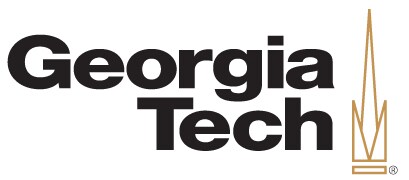ATLANTA (Sept. 18, 2018) –Children’s Healthcare of Atlanta performed Georgia’s first-ever procedure to place 3D-printed tracheal splints in a pediatric patient on Aug. 17, 2018. A cross-functional team of Children’s surgeons used three custom-made splints, which biomedical engineers at Georgia Institute of Technology helped create using an innovative and experimental 3D-printing technology, to assist the breathing of a 7-month-old patient battling life-threatening airway obstruction.
"We are so fortunate to work with a leading engineering school like Georgia Tech to find innovative, potentially life-saving treatment options for our patients,” said Donna Hyland, CEO at Children’s. “This is a great example of how aligning Children’s clinical expertise with the missions of our research collaborators can improve patient outcomes. Research that can be translated into more effective care at the bedside is why our collaboration with Georgia Tech is so important for the future of pediatric care in Georgia.”
The patient who received the groundbreaking surgery is a 7-month-old boy battling congenital heart disease and tracheo-bronchomalacia, a condition that causes severe life-threatening airway obstruction. During his six-month inpatient stay in the Pediatric Intensive Care Unit (PICU) at Children’s, he experienced frequent episodes of airway collapse that could not be corrected by typical surgery protocols. The clinical team proposed surgically inserting an experimental 3D-printed tracheal splint, which is a novel device still in development, to open his airways and expand the trachea and bronchus.
Scott Hollister, PhD, who holds the Patsy and Alan Dorris Endowed Chair in Pediatric Technology, a joint initiative supported by Georgia Tech and Children’s, developed the process for creating the tracheal splint using 3D-printing technology at University of Michigan C.S. Mott Children’s Hospital before joining Georgia Tech. The Children’s procedure was the 15th time a 3D-printed tracheal splint was placed in a pediatric patient.
“The possibility of using 3D-printing technology to save the life of a child is our motivation in the lab every day,” said Dr. Hollister, who is also Director of the Center for 3D Medical Fabrication at Georgia Tech. “We’re determined to develop innovative solutions that meet the needs of Georgia’s most complex pediatric patients.”
The splints were created using reconstructions of the patient’s airways from CT scans. Dr. Hollister and his team of biomedical engineers collaborated with the Global Center for Medical Innovation (GCMI) so that GCMI could create multiple versions of the splint, of varying sizes, to help ensure the perfect fit was available for the surgical team to select and place around the patient’s airways during surgery. GCMI will also support the ongoing development and commercialization of the technology.
In a complex 10-hour surgery, Children’s cross-functional team of surgeons successfully placed three 3D-printed splints around the patient’s trachea on the morning of Aug. 17, 2018. The splints will eventually be absorbed into the patient's body, allowing for expansion of the trachea and bronchus.
The Children’s tracheal splint team included Steve Goudy, MD, and April Landry, MD, pediatric otolaryngologists; Subhadra Shashidharan, MD, a Pediatric Cardiothoracic Surgeon; and Kevin Maher, MD, a Pediatric Cardiologist.
As the tracheal procedure concluded, the child was placed on a heart lung machine for surgical repair of his cardiac defect. Post-operative care took place in the Cardiac Intensive Care Unit (CICU) and PICU at Children’s.
“It’s the close relationships we have with our research collaborators that make this kind of groundbreaking procedure possible,” said Dr. Goudy. “A large number of additional physicians, support staff and outside collaborators worked together on this innovative procedure.”
The 3D-printed tracheal splint is a new device still under development, as safety and effectiveness have not yet been determined and is therefore not available for clinical use. The Children’s team sought emergency clearance from the U.S. Food and Drug Administration (FDA) to move forward with the procedure under expanded access guidelines.
In 2015, Georgia Tech and Children’s formed the Children's Healthcare of Atlanta Pediatric Technology Center on Georgia Tech's campus to further advance pediatric research.

